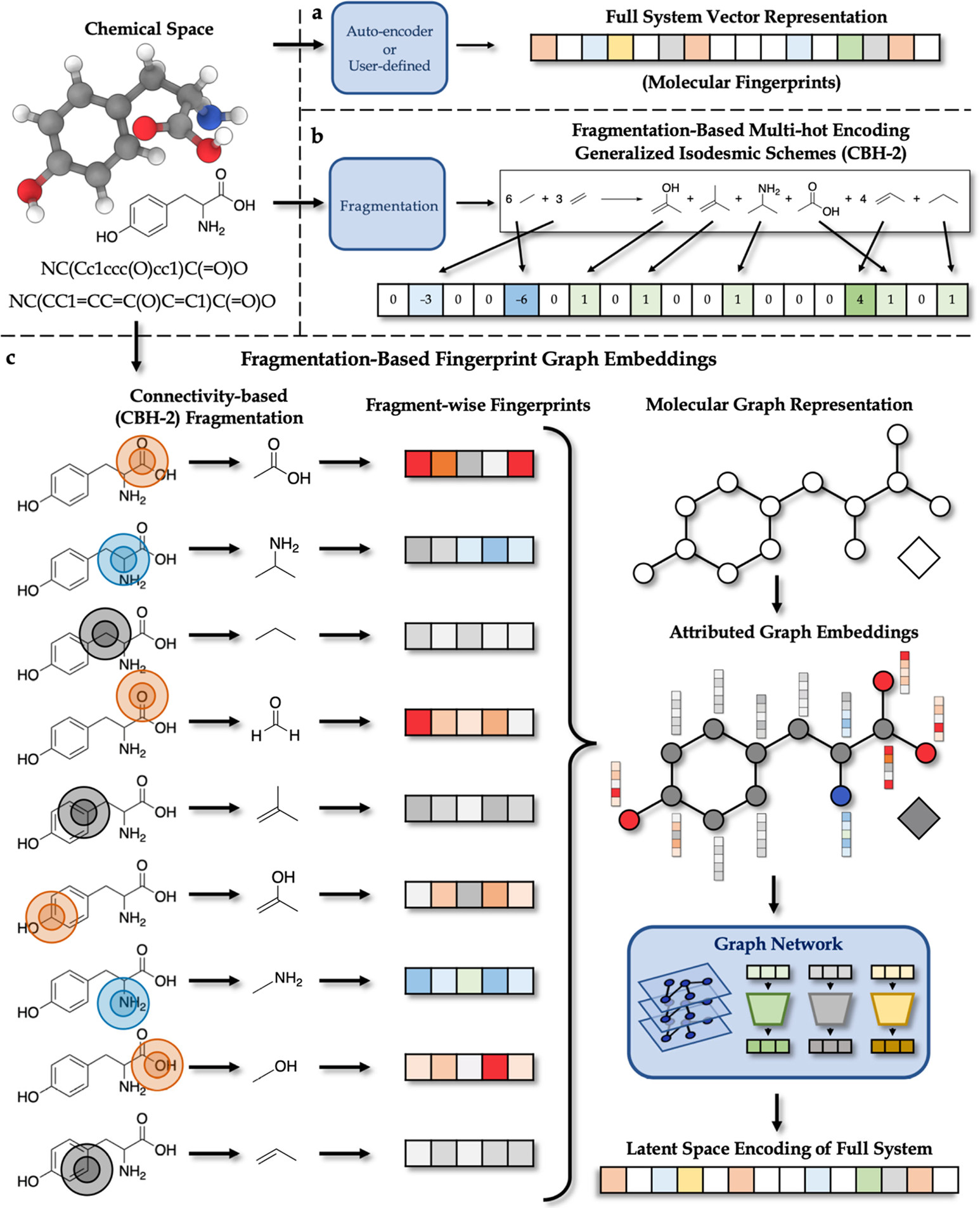

We develop new models using machine learning to predict a wide range of properties such as heats of formation, ionization potential, pKa, and NMR chemical shifts. There has also been an interest in delta ML models, which correct approximate calculations (DFT) to attain high accuracy (ex: coupled-cluster ). Ongoing development of interpretable models and generative models.
Recent Publications:
"Fragmentation-based Graph Embedding Framework for QM/ML”, E. M. Collins and K. Raghavachari, J. Phys. Chem. A. 125, 6872-6880 (2021). https://doi.org/10.1021/acs.jpca.1c06152
"Quantitative Prediction of Vertical Ionization Potentials from DFT via a Graph-Network-Based Delta Machine Learning Model Incorporating Electronic Descriptors”, S. Maier, E. M. Collins, a nd K. Raghavachari, J. Phys. Chem. A 15, 3472–3483 (2023). https://doi.org/10.1021/acs.jpca.2c08821
"MIM-ML: A Novel Quantum Chemical Fragment-Based Random Forest Model for Accurate Prediction of NMR Chemical Shifts of Nucleic Acids”, S. K. Chandy and K. Raghavachari, J. Chem. Theory Com put. 19, 6632–6642 (2023). https://doi.org/10.1021/acs.jctc.3c00563
"Interpretable Graph-Network-Based Machine Learning Models via Molecular Fragmentation”, E. M. Collins and K. Raghavachari, J. Chem. Theory Comput. 19, 2804−2810 (2023). https://doi.org/1 0.1021/acs.jctc.2c01308
"Leveraging DFT and Molecular Fragmentation for Chemically Accurate pKa Prediction Using Machine Learning”, A. J. Sanchez, S. Maier and K. Raghavachari, J. Chem. Inf. Mod. (2024).https://doi.org/10.1021/acs.jcim.3c01923
